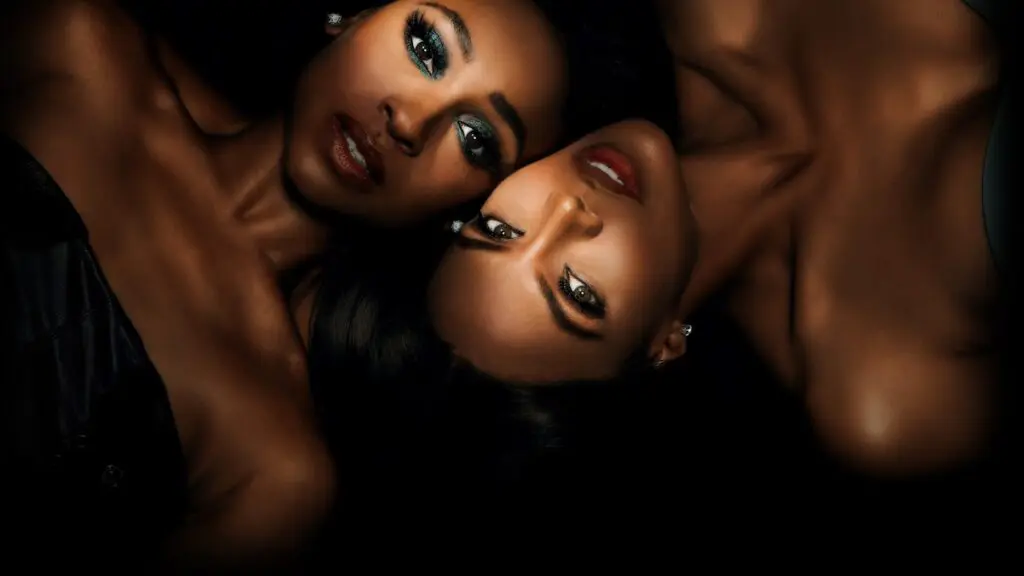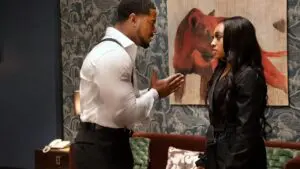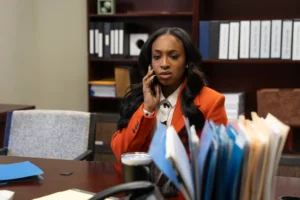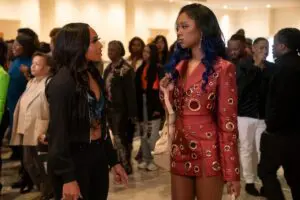Summary
Beauty in Black is predictably woeful, which will come as no surprise to anyone even passingly familiar with Tyler Perry’s output.
I know I give Tyler Perry a hard time, but he’s asking for it. Nobody else in entertainment delivers more execrable projects and seems so determined to plaster their name all over them. Since becoming a billionaire mogul on the back of the Madea movies, of all things, it’s like Perry has deliberately isolated himself from anyone who’s willing to tell him that something like Beauty in Black is a terrible idea.
All of Perry’s ideas are terrible. His deal with Netflix has produced such delights as Mea Culpa and A Fall From Grace, both laughable garbage, but Beauty in Black is the first series to germinate from this arrangement. To make matters worse, it’s releasing like a lot of Netflix shows do these days, in two parts, each consisting of eight tortuous episodes.
You can’t even escape from Perry on a different platform. The project before this one, Divorce in the Black, was released exclusively on Prime Video and was so bad I thought it might have been a joke. But it wasn’t. And neither is this.
You can see the dilemma. Perry is a Black filmmaker who is respectably adamant about telling stories about Black characters (and literally including the word “black” in a lot of his titles, for subtlety’s sake). And we want more of those! But we want them from competent filmmakers whose interpretation of the Black experience wasn’t formed on an Atlanta moviemaking compound and doesn’t so consistently delight in Black female trauma.
That’s presumably what we want, anyway – granted, I’m not the target demographic, nor am I ideally positioned to speak on such things. But quality I can speak on. And Beauty in Black has none. It’s an aggressively stereotypical and overwrought drama about two women – one, Kimmie, a stripper, and the other, Mallory, a haircare mogul from humble beginnings – who are united by their connections to awful rich men. Go figure.
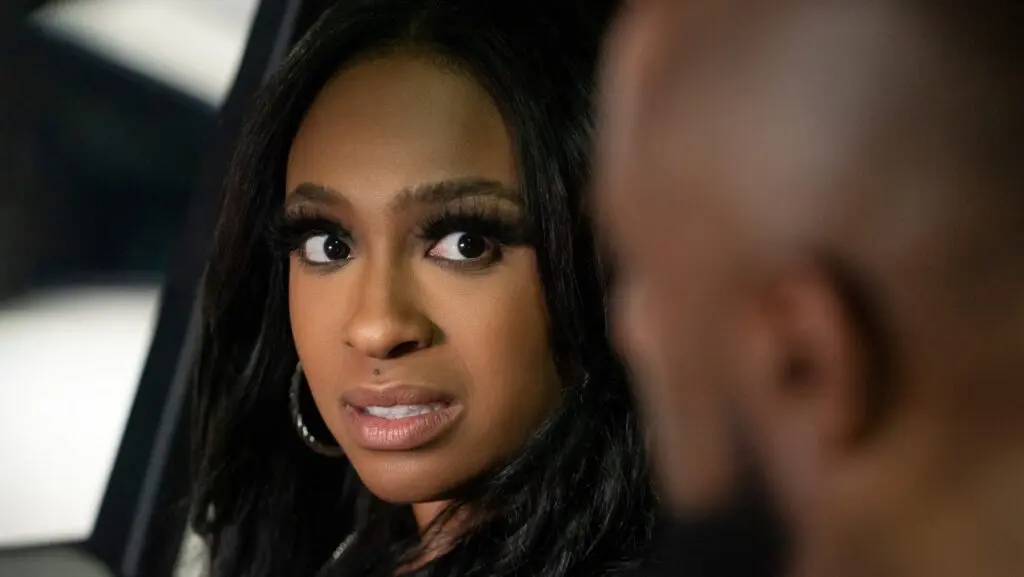
Beauty in Black | Image via Netflix
Perry wants to tell a story about sex work here, about power, and about the contradictions of public-facing personas and abusive interiors. But he wants to tell it in the most obvious way possible, as coarsely as possible, and the whole thing’s just wildly off-putting. This plays less like an empowerment vehicle and more like an extensive catalog of the very worst things that can happen to women at any given moment.
But I’m a fair man. I’ll give Perry credit for a couple of things. He casts extraordinarily good-looking, talented actors. Kimmie is played by Taylor Polidore Williams, who was the only good aspect of Divorce in the Black, and Mallory by Crystle Stewart, who was also in Perry’s much earlier, slightly more respectable effort, Acrimony. And he understands dramatic pacing, at least insofar as keeping eight episodes moving by having something happening all the time.
But he’s self-defeating. He buries the stars in dodgy color grading and has them perform the material like it’s a melodramatic send-up of a thriller. But it’s not – it’s a serious, straight-laced thriller. Or it’s supposed to be, anyway. And the constant need for stuff happening leads to a flurry of characters, subplots, twists, red herrings, leering nudity, and childlike profanity. It’s tedious beyond words.
Beauty in Black seems to have been conceived as an effort to make a story with dark underlying themes as stereotypical and sensationalized as possible, almost as if we’re being dared to take it so un-seriously that it doesn’t matter what the characters are put through or what the point of it all was. On that level, at least, Perry is entirely successful. But I doubt it’s what he was aiming for.
RELATED:

